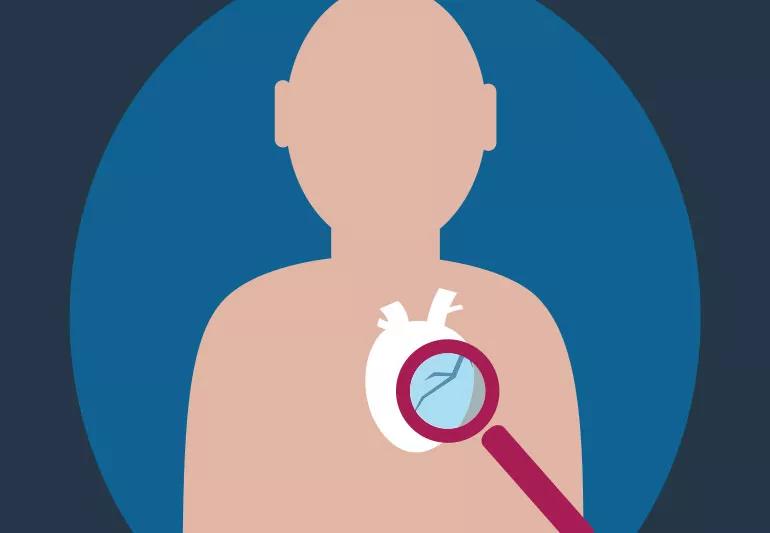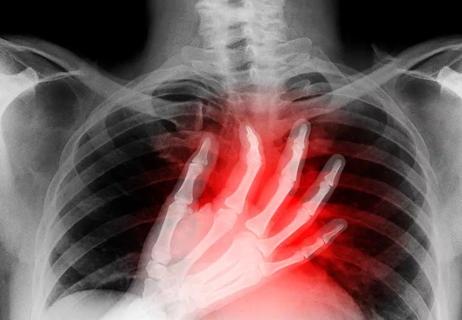Preventive steps to take plus what to do in an emergency

You may think the most common single cause of death in the United States is heart attack. Or cancer. Or stroke.
Advertisement
Cleveland Clinic is a non-profit academic medical center. Advertising on our site helps support our mission. We do not endorse non-Cleveland Clinic products or services. Policy
But it’s actually sudden cardiac arrest (SCA). SCA is a problem with your heart’s electrical system (usually called ventricular tachycardia or ventricular fibrillation).
Most SCA victims survive if they get help very quickly. But SCA is fatal 95% of the time.
“Only about 5% of those who have a sudden cardiac arrest survive long enough to get to — and then be discharged from — the hospital alive,” notes cardiologist Bruce Wilkoff, MD, an expert in heart rhythm disorders.
“They might have been alone or with someone who didn’t know CPR, or no one called 911. Or the ER squad couldn’t get there within the 10 minutes required to prevent brain death.”
In sudden cardiac arrest, the heart typically races away in a confused, disorganized manner.
Circulation halts. Blood doesn’t reach the lungs or brain. People abruptly pass out, don’t respond, stop breathing, have no pulse.
“No one can endure this for more than about four or five seconds without passing out,” says Dr. Wilkoff.
About 365,000 people per year experience SCA at home or out in public. That’s roughly equivalent to the combined annual deaths from:
Advertisement
SCA is one of the most frequent causes of sudden death. Others include myocardial infarction (heart attack), heart muscle rupture and stroke.
The heart rhythm disturbances leading to SCA can result from:
If someone nearby falls over and is unresponsive, with no signs of breathing or a pulse, call 911. If you know how to use an automatic external defibrillator (AED), find one and use it, says Dr. Wilkoff. If not, do CPR until the ambulance arrives.
“Defibrillation is the No. 1 thing that improves survival in sudden cardiac arrest. CPR keeps people alive long enough to be defibrillated,” he explains.
Learning both skills can save a life. The American Heart Association offers training, as do many fire departments, schools and libraries.
“Most people who die suddenly either didn’t know they were going to die suddenly or didn’t pay attention to the warning signs,” says Dr. Wilkoff.
Briefly passing out is usually nothing more than a fainting spell. But it’s also possible to experience a more serious but temporary irregular heart rhythm that indicates more serious heart disease.
If you or someone you love passes out, consider whether they might be at risk of SCA and see a physician, he advises.
“If you have heart scarring or symptoms of heart failure, or a history of heart attack, or a low injection fraction and continue to smoke, you likely need an ICD,” notes Dr. Wilkoff.
Advertisement
Learn more about our editorial process.
Advertisement

One is caused by an electrical issue, while the other is caused by blocked arteries

Move a little more, eat a little healthier, sleep a little better and destress a lot

Eating too much salt can put extra pressure on your blood vessels and heart

At-home treatments and lifestyle changes may help ease the symptoms and improve the appearance of varicose veins — but they aren’t a cure

Making a health plan with your doctor before you leave will make it easier to sit back and enjoy your flight

From heartburn and panic attacks to muscle spasms and heart attacks, lots of medical conditions can cause chest pain

The vitamins, minerals and other nutrients in the food you eat are essential for a healthy heart, but supplements are another story

All heart valve diseases affect your heart’s valves, but there are some differences between symptoms, risk factors and how they can impact your health

The ‘sunshine vitamin’ is found naturally in some fish and is added to other foods

Autism and ADHD often go hand in hand, giving rise to the term AuDHD

The Yuzpe regimen is less effective than other forms of emergency contraceptives, and it’s associated with more side effects